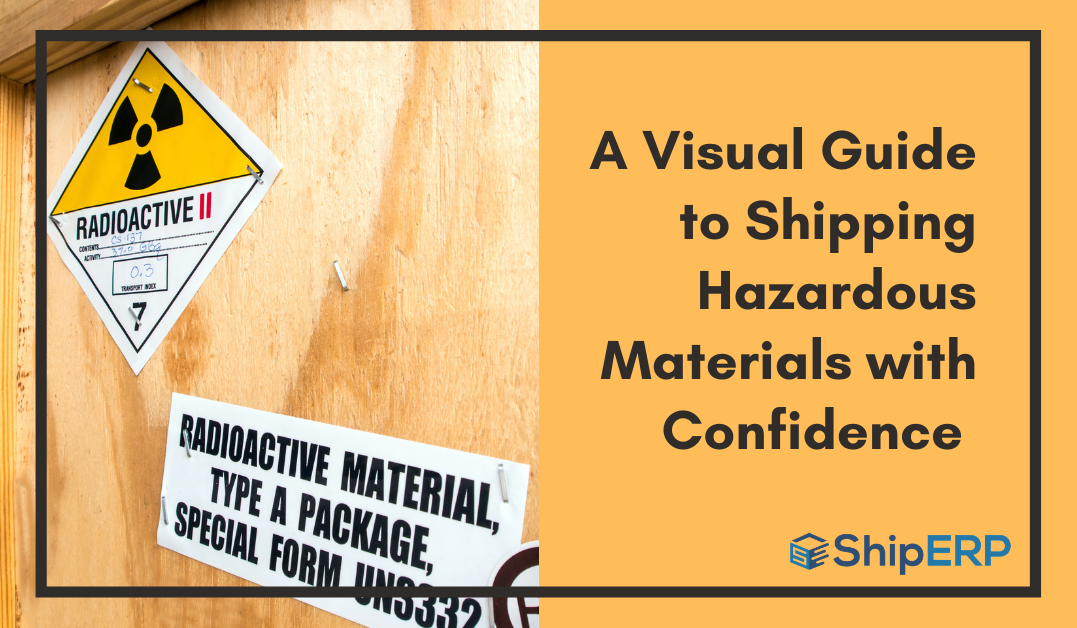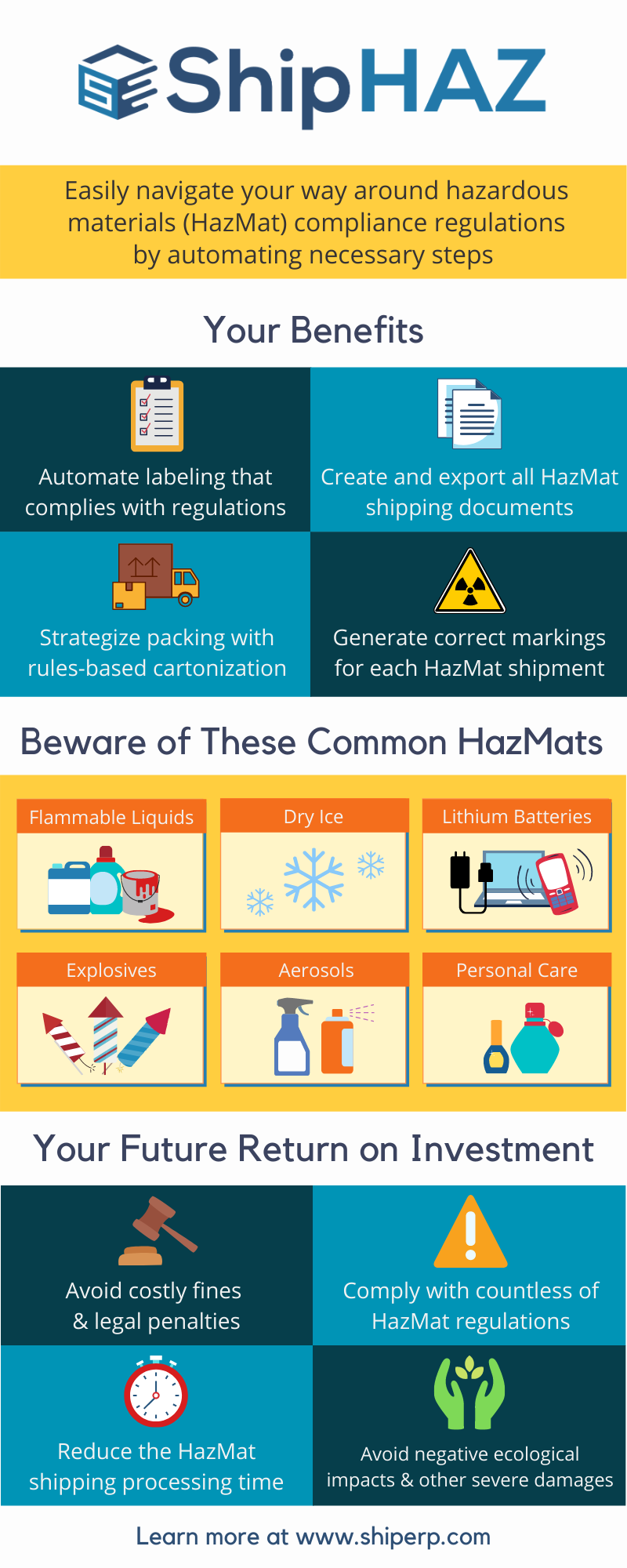
Ship Your Hazardous Materials with Confidence Using ShipHAZ
When your company works and ships dangerous goods, compliance is crucial to running your business. You must ensure the proper handling of the hazardous materials, or else! You risk paying costly, maybe even deadly, consequences if you are reckless with hazardous materials shipping.
Federal regulation may be a pain to navigate through, but you can integrate a hazardous materials compliance software like ShipHAZ to solve this challenge. The rule of thumb in HazMat compliance is to accurately identify, correctly label, and clearly communicate your dangerous shipments.
Your Future ShipHAZ Benefits
All companies must comply with regulations from the International Air Transportation Association (IATA) and the Council of Foreign Relations (CFR) when it comes to shipping hazardous goods. Luckily for you, ShipHAZ can automatically generate all the required labels, markings, and documents that follow federal regulation.
Here’s what you’re guaranteed to love in ShipHAZ’s HazMat automation:
- Automate labeling that complies with HazMat regulations from around the world
- Create and export all the required HazMat shipping documents
- Strategize packing with cartonization based on business rules
- Generate correct markings for each HazMat shipment to meet compliance regulation
Beware of These Common HazMat Goods
Individually, most of these goods don’t seem like hazardous materials. When you ship them in bulk, however, that’s when they become dangerous goods. Before you ship anything, it’s crucial to accurately identify which of your products are considered hazardous. Without this important step, you won’t be able to label and communicate the proper handling of these dangerous goods.
Pay attention to these common hazardous materials:
- Flammable Liquids: paint, wood stains, adhesives, bleach, etc.
- Dry Ice: Food, medical devices, or other perishable items that require dry ice in the packaging
- Lithium Batteries: Chargers, laptops, cell phones, and other electronic devices
- Explosives: Fireworks, ammunition, gun powder, etc.
- Aerosols: Cleaners, hairspray, insecticide, fire extinguishers, etc.
- Personal Care: Fragrances, nail polish, nail polish remover, mouthwash, etc.
Understand why these goods are considered hazardous in our HazMat resource.
Your Future Return on Investment with ShipHAZ
According to the Department of Transportation, more than 20,000 incidents occurred involving hazardous materials in 2019 resulting in millions of dollars' worth of damages. You don’t want this to be you! Be meticulous in your compliance with an automated solution ShipHAZ to gain confidence in shipping dangerous goods.
ShipHAZ will save you from lots of trouble! This is how:
- Avoid incurring legal penalties and paying costly fines
- Comply with countless of global HazMat regulations
- Reduce the HazMat shipping processing time
- Avoid negative environmental impacts & other severe damages
For more information dangerous goods, check out our Guide to Shipping Hazardous Materials.



